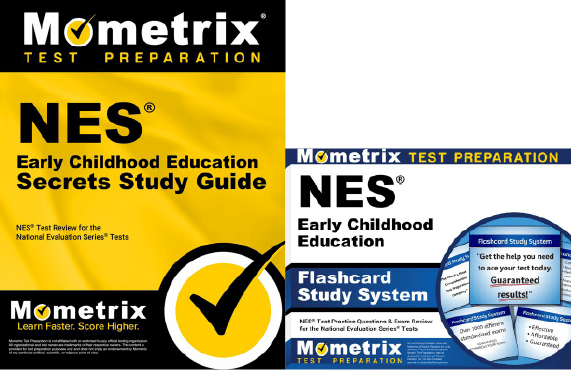If you need help studying for the NES Early Childhood Education test or just want some more information about what the test is like, you’ve come to the right place!
Click below to take a free NES Early Childhood Education practice test!
What’s on the Test?
The NES Early Childhood Education test contains 160 multiple-choice questions and is timed at 4 hours.
The test is split into two subtests:
Subtest I (108)
80 questions | 2 hours
- Child Development, the Learning Environment, and Social and Emotional Skill Development (67%)
- Ways that young children construct knowledge, learn, and develop
- Creating positive learning environments that are safe and responsive
- Social and emotional development
- Stages and progressions of child development
- Factors that influence children’s early development and learning
- Appropriate and positive behavior practices that develop children’s competence
- Professional Knowledge and Responsibilities (33%)
- Strategies for building positive and collaborative relationships with families, professionals, and community agencies and organizations
- The roles and responsibilities of early childhood educators
Subtest II (109)
80 questions | 2 hours
- CLearning Across the Curriculum—Assessment Practices, Language and Literacy (57%)
- Strategies for developing all children’s reading and comprehension skills
- Early processes of written expression
- Using developmentally appropriate and authentic assessment strategies
- Language development in children
- Providing learning experiences and instruction that encourage all children’s language development and emergent literacy skills
- Strategies for developing all children’s writing competence
- Early reading processes and concepts
- Learning Across the Curriculum—Mathematics, Social Studies, Science, Physical Education, and the Arts (43%)
- Facilitating all children’s mathematical learning
- Facilitating and promoting all children’s learning about health, physical education, and the fine arts
- Social studies, science, technology, and engineering concepts and skills
- Early mathematical concepts, processes, and skills
How to Register
To get started with the registration process, you’ll need to create an NES account on their website. You can then register for the exam via your account.
How the Exam is Scored
The NES Early Childhood Education test is scored using a scaled scoring method. Here’s how it works:
For every question you answer correctly, you get one point added to your raw score. At the end of the test, your final raw score will be converted to a scaled score. This scaled score will range somewhere between 100 and 300.
The reason your raw score is converted to a scaled score is because everyone that takes the test is given a slightly different set of questions. Since everyone has a different arrangement of questions, and because some questions are harder than others, converting your raw score to a scaled score ensures a more even playing field.
FAQs
How many questions are on the NES Early Childhood Education exam?
The exam contains 160 questions.
What is the time limit for the NES Early Childhood Education exam?
The exam is timed at 4 hours.
What is the passing score for the NES Early Childhood Education exam?
You’ll need to get a final scaled score of at least 220 on each subtest to pass the exam.
How much does the NES Early Childhood Education exam cost?
The testing fee is $119 for each subtest.
NES and National Evaluation Series are trademarks of Pearson Education, Inc. or its affiliate(s). This page was developed by Mometrix Test Preparation. It was not developed in connection with Pearson Education, Inc., nor was it reviewed, approved or endorsed by these agencies.



 NES Study Guide
NES Study Guide NES Flashcards
NES Flashcards